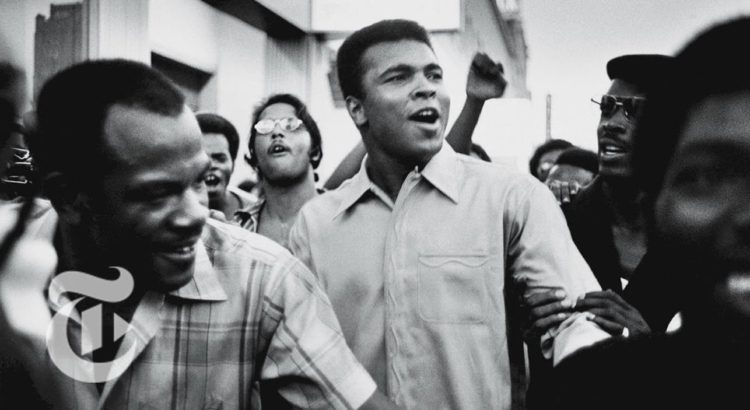My heart is broken over the death of Muhammad Ali, who was a hero for those of us raised in the sixties and for whom he modeled that poetic dialectic between the body and a notion of resistance. For my working class generation, the body was all we had–a site of danger, hope, possibility, confusion, and dread–he elevated that understanding into the political realm by mediating those working class concerns into a brave and courageous understanding of politics as a site of resistance. He made it clear that resistance was a poetic act that was continually being written. He unsettled the racial order, protested the war, and danced in the ring like a butterfly–a master of wit, performance, and sheer courage. But outside of being the greatest boxer in the world, he sacrificed three and a half years of his career for the ideals in which he believed. He was not merely an icon of history, he helped to shape it. Ali had his flaws and his ridicule of Joe Frazier and his disowning of Malcolm X speak to those shortcomings, but Ali was not a god, he was simply flawed differently. It will be hard to find people like Ali in the future now that self interest and a pathological narcissism has taken over the culture in the age of casino capitalism. I will miss him and only hope his legacy will leave the traces of resistance that will inspire another generation. He was a champ in the most courageous sense who showed generations of working class kids how to talk back with dignity and grace.







 Users Today : 51
Users Today : 51 Total Users : 35460068
Total Users : 35460068 Views Today : 68
Views Today : 68 Total views : 3418699
Total views : 3418699